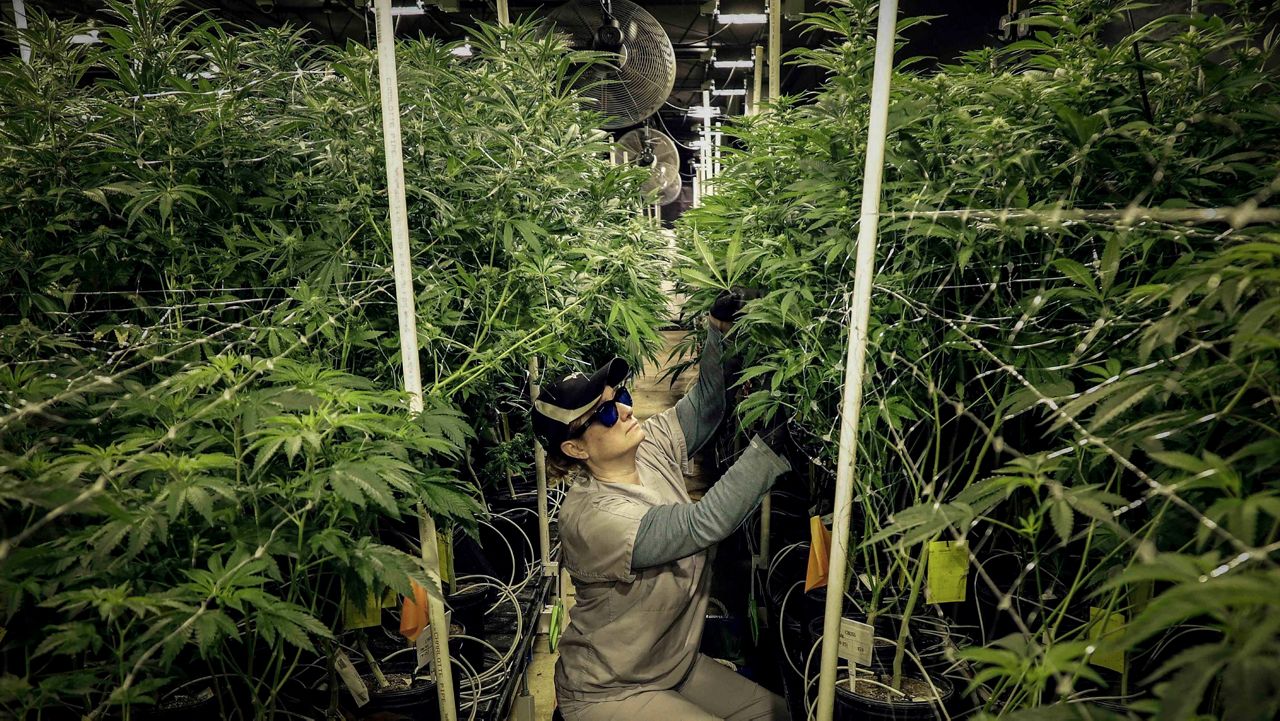When President Joe Biden made headlines last week for pardoning people with low-level marijuana charges, he also directed federal regulators and the Attorney General to look at how pot is scheduled under national drug laws.
If the federal government makes medical marijuana legal by labeling it as a different schedule drug, that could mean drastic changes for how North Carolina deals with marijuana.
A bill passed by the North Carolina General Assembly last year would bring state law inline with federal law if there are any moves to change the classification of marijuana on the Drug Enforcement Agency’s drug schedule.
Marijuana is considered a Schedule I drug, in the same league with heroin and LSD. It’s a higher classification than cocaine, fentanyl and methamphetamine, which are all Schedule II.
Essentially, the North Carolina law would legalize medical marijuana to bring state law in line with federal law. If federal officials decide to move marijuana to a lower tier in the Controlled Substances Act, allowing doctors to prescribe it to patients, North Carolina law would follow suit.
The state’s Commission for Mental Health, Developmental Disabilities, and Substance Abuse is in charge of North Carolina’s drug schedule, and could potentially object to the move. But the commissioner would not have to act to allow any changes to go into effect automatically.
A Republican-backed bill in the North Carolina legislature would have legalized medical marijuana in the state. It passed the Senate but stalled out in the state House. This other bill, aligning state marijuana law with federal, passed through the House at just about the same time in June.
“Too many lives have been upended because of our failed approach to marijuana. It’s time that we right these wrongs,” Biden said last week as he announced the pardons.
“I am asking the Secretary of Health and Human Services and the Attorney General to initiate the administrative process to review expeditiously how marijuana is scheduled under federal law,” the president said. “Federal law currently classifies marijuana in Schedule I of the Controlled Substances Act, the classification meant for the most dangerous substances.”
Dozens of states have already legalized medical or recreational marijuana, even though it remains illegal under federal law.
The FDA and the Justice Department could potentially downgrade marijuana on the Controlled Substances Act, moving it from Schedule 1 to a different schedule where it would be regulated as a medication.
The FDA has no role in regulating medical marijuana programs in the states with the current law.
The schedule in the Controlled Substances Act ranks drugs in five categories, from substances with no medical use the the high potential for abuse like heroin as Schedule I, down to Schedule V, which includes cough syrup with small amounts of codeine like Robitussin AC, according to the DEA.
The president ordered the attorney general and the head of HHS to start the review last week, but it will likely take some time.
“The president is asking him to undertake a review, not to de-schedule or any particular schedule. He has asked him to undertake the review to assess where — what — how marijuana should be classified,” the Biden administration said in a call with reporters.
“The process will take some time because it must be based on a careful consideration of all of the available evidence, including scientifical — scientific and medical information that’s available,” an administration official said. “That said, the President is calling on the secretary of HHS and the AG to conduct the review expeditiously. This is meant to proceed swiftly. But, you know, this has to be a serious and considerate review of the available evidence.”
The new law, titled Senate Bill 448: Amendments to Schedule VI of the Controlled Substances Act, passed through the General Assembly and was signed by the governor in June.
According to the legislative summary of the bill, “Senate Bill 448 would make prescription drugs containing marijuana and tetrahydrocannabinols (THC) lawful in North Carolina automatically if the following factors are met:
- The FDA approves the use of the prescription drug
- The Drug Enforcement Administration (DEA) makes the appropriate change to the federal controlled substance schedules
- The Commission does not object to excluding the new drug from Schedule VI
The summary is referring to the North Carolina Commission for Mental Health, Developmental Disabilities and Substance Abuse, which regulates drug schedules for the state.
“While Senate Bill 448 would allow the Commission to object to removing the new drug from Schedule VI, it does not require any positive action by the Commission. If the Commission does not make an objection, the new drug would automatically be excluded from Schedule VI,” the summary reads.
North Carolina’s drug schedule categories are different from the federal schedule. In North Carolina, Schedule VI is for illegal substances with “no currently accepted medical use in the United States,” and only lists marijuana and its active ingredient THC.
